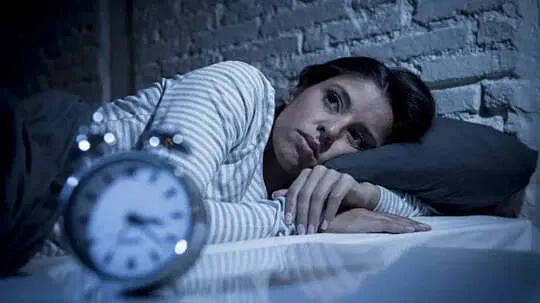Insomnia Warning: Experts Call It a Mental Health Emergency; Here’s How You Can Heal
Sanjeev Kumar | October 21, 2025 8:23 PM CST

While it is normal to lose sleep once-in-a-while, there has been a significant rise in number of cases in India, prompting the experts to call it a mental health emergency.
According to doctors, chronic insomnia - the inability to sleep in a regulated manner- completely affects your mental health in many ways - thereby lowering your productivity, emotional balance, and overall quality of life. Irregular routines, poor diet and high stress levels have created this "silent crisis", experts believe.
Youngsters most affected
According to the Centers for Disease Control and Prevention, more than three adults - younger than 40 years of age - and nearly eight out of 10 teenagers do not get enough sleep. Statistics say around a quarter of adults have chronic sleep disorders like sleep apnea or insomnia, which turns into mental health issues like depression and anxiety.
Also, studies say those with insomnia are at least ten times more likely to have depression and 17 times more likely to have anxiety. Sleep apnea also raises the risks of these conditions and can reduce your ability to control emotions.
How to help cure insomnia naturally?
Many natural ways can help you treat and naturally get rid of insomnia, which is also instrumental in treating various mental health issues. A few of these tried-and-tested tricks include:
Meditation
Meditation is slow and steady breathing as you sit quietly. According to experts, you need to observe your breath, body, thoughts, feelings, and sensations as they rise and pass. Mindful meditation has numerous health benefits that go hand-in-hand with a healthy lifestyle, promoting good sleep apart from reducing stress, improving concentration, and boosting your immunity levels.
Yoga
Experts believe yoga has a positive effect on sleep quality, and it alleviates stress, improves physical functioning, and boosts mental focus. Choose a style that focuses more on moving meditation or breathwork as opposed to difficult physical movements. Slow, controlled movements allow you to stay present and focused. Yin and restorative yoga are great options.
Strive to do a few longer sessions each week, and at least 20 minutes of daily self-practice. Experts suggest not to go for a pose that does not feel right for you, as it can result in injury.
Exercise and workout
Exercise boosts overall health and enhances your mood, gives you energy, helps with weight loss, and even treats insomnia. Experts suggest working out for at least 150 minutes every week for better results, which includes reduced symptoms of depression and anxiety.
Apart from cardio, you can also add some strength training or vigorous aerobic exercise a few times per week. Find the time of day that best suits your needs and that has the most positive effect on your sleep.
Massage
Massage therapy benefits those with insomnia by improving sleep quality and daytime dysfunction. It also reduces feelings of pain, anxiety, and depression and allows your mind to focus on the feelings and sensations of touch as your mind wanders.
Even though it is usually safe, massaging should only be done by professionals to avoid any untoward injury.
READ NEXT
-
At the age of 66, a woman became the mother of her 10th child, know from the doctor what is rare pregnancy and its risks.

-
If you eat 1 laddu daily in winter, all the pain will go away, you will get relief from knee, waist and joint pain.

-
Realme GT 8 Pro launched with 200MP camera, 7000mAh battery; Deets inside

-
India’s Smartphone Market Grows 3% Year In July-Sep, Apple Posts Record Shipments | Technology News

-
Seahawks Top Texans 27-19 Behind Star Receiver, Defense
